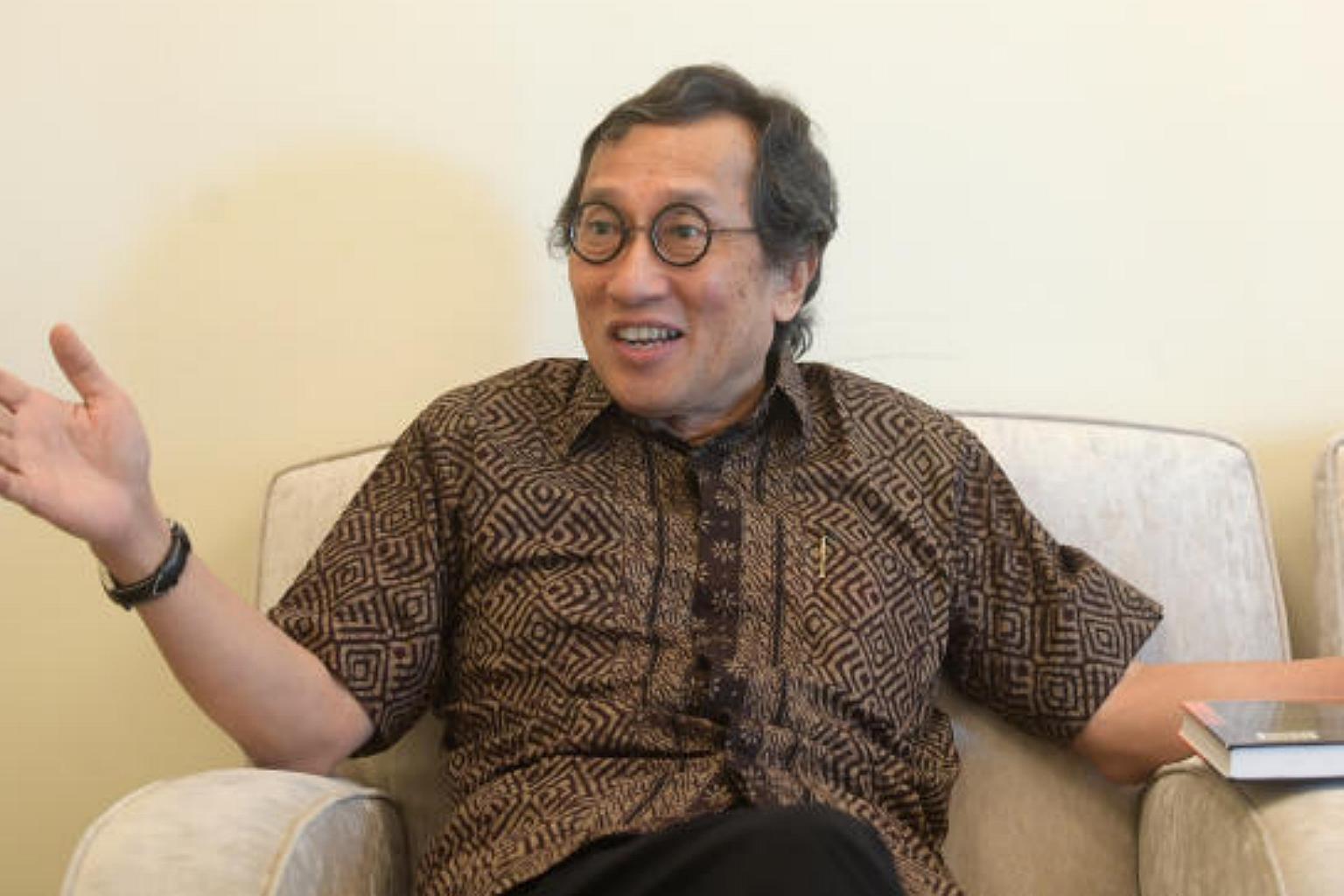S'poreans should be aware of China's influence ops: Bilahari
Sign up now: Get ST's newsletters delivered to your inbox

Retired diplomat Bilahari Kausikan said: "China doesn't just want you to comply with its wishes, it wants you to think in such a way that you will, of your own volition, do what it wants without being told."
PHOTO: ST FILE
Singapore has not been spared China's covert "influence operations", and Singaporeans should be aware of when Beijing is trying to manipulate them, retired diplomat Bilahari Kausikan said yesterday.
These influence operations are aimed at swaying leaders and people abroad to China's positions, thereby advancing its interests and promoting its influence, said the former permanent secretary for foreign affairs.
In a keynote speech at a conference on Chinese public diplomacy, he outlined the approach and aims of China's campaigns.
The conference was hosted by the S. Rajaratnam School of International Studies and the US-based AidData at the College of William and Mary, the Centre for Strategic and International Studies and the Asia Society Policy Institute.
China stands out in three ways from other major countries that persuade, induce and coerce, said Mr Kausikan, who now heads the National University of Singapore's Middle East Institute.
First, China explicitly rejects the norm of not interfering in another state's domestic affairs and believes its interests should be promoted wherever they may be.
Second, China uses a range of tactics - from legitimate diplomacy to more covert and often illegal deployment of agents of influence and operations - to sway decision makers or public opinion leaders.
As countries want to keep diplomatic relations with Beijing on an even keel, they can end up overlooking or downplaying the subtler manipulation, he said.
Third, the aim of its influence operations is not just to direct behaviour, but to condition behaviour.
He said: "China doesn't just want you to comply with its wishes, it wants you to... do what it wants without being told."
A key tactic is to present target countries with oversimplified narratives, "forcing false choices on you and making you choose between them", he said.
For example, "America is the past and China is the future, so get on the right track", or that being close to the US makes it difficult to have a close economic relationship with China, he said.
Narratives used against Singapore include "Singapore has no claim in the South China Sea, so why is the Singapore Government taking sides against China?"
Another is that "relations were much better under Mr Lee Kuan Yew because he understood China in a way the present Singapore leadership does not", he said.
These narratives are powerful because they contain kernels of truth, but are extremely simplistic and gross distortions, or leave out facts, said Mr Kausikan.
China, for example, conveniently neglects to mention that the late Mr Lee stood up to the Communist United Front, he said.
These narratives are spread through social media like WeChat and by word of mouth, and reinforced by actions such as militarisation in the South China Sea and the seizure of Singapore's Terrex armoured vehicles in 2016.
But Mr Kausikan said that once people are aware of influence operations being conducted on them, they are much less likely to fall for the manipulation. "When the Chinese try to impose a Chinese identity on Singapore, we must resist, because modern Singapore is based on the idea of being a multiracial country."
He added: "It is not going to be a smooth ride. China will always enjoy significant influence in this region, but significant influence is not dominant or exclusive."


